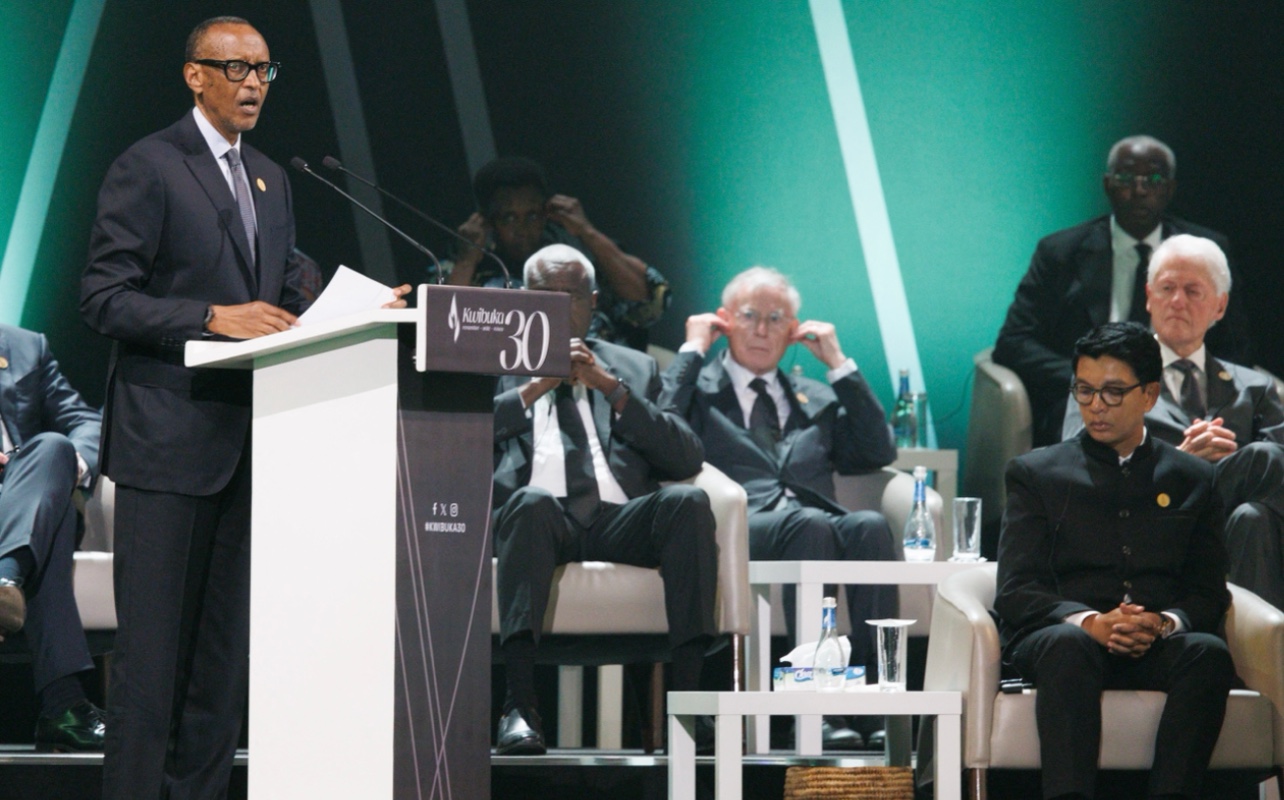
April 8, 2024
Rwandan President Paul Kagame Blames International Community For Genocide Inaction During 30-Year Commemoration
During the 100 days of killing an estimated 800,000 people were left dead.
During a commemoration of the 30-year anniversary of the beginning of 1994 Rwandan Genocide, Rwandan President Paul Kagame blamed the inaction of the international community for extending the horrors his people faced.
The Rwandan Genocide began after a plane carrying then-Rwandan President Juvénal Habyarimana, a Hutu, was shot down as it flew over Kigali. The Tutsis were blamed for the death of Habyarimana and a campaign of blood was waged against them in response. Hutu extremists also killed some moderate Hutus who tried to protect the Tutsis during the 100 days of killing which left an estimated 800,000 people dead.
As the Associated Press reported, the commemoration was attended by world leaders, including former U.S. President Bill Clinton, who was the American president during the genocide, as well as Israel’s president, Issac Herzog.
Kagame said during his speech, “It was the international community which failed all of us, whether from contempt or cowardice.”
Kagame continued, “Our journey has been long and tough. Rwanda was completely humbled by the magnitude of our loss, and the lessons we learned are engraved in blood. But the tremendous progress of our country is plain to see and it is the result of the choice we made together to resurrect our nation.”
Clinton, along with French President Emmanuel Macron admitted failure. Clinton did so after he left office, saying that the inaction in Rwanda by his administration was one of the greatest failures during his tenure. Macron recorded a message before the commemoration, saying that France and its allies did not have the political will to do so.
An analysis of the foreign policy towards the Rwandan Genocide by Foreign Policy seems to agree with Macron, putting the onus on not only America and France, but on the way that the UN functions in general.
As Bronwen Everill, a lecturer in history and a fellow of Gonville & Caius College at the University of Cambridge writes, “The failure of the United Nations to expand the remit of its peacekeepers on the ground—hamstrung by a Chapter 6 mandate that limited its activities to implement the Arusha Accords—left soldiers powerless to stop the killing happening right in front of them.”
Kagame, who is credited with leading the rebels that ended the Rwandan Genocide, has been accused by human rights groups of creating a climate of fear. He has also been accused of forcing his political opponents to flee the country or having them disappear, while others were killed. Kagame, according to a column by Tafi Mhaka for Al-Jazeera, should not be absolved of his own abuses.
Mhaka writes, “So editors should stop declaring Kagame a “pioneer”, calling him “inspirational” and claiming he is a “standard bearer” in African politics. He cannot be considered any of those things until dissenting Rwandans stop being threatened, arbitrarily jailed or forcibly disappeared. Rwanda and Africa deserve much better.”
RELATED CONTENT: ‘Hotel Rwanda’ Hero Rusesabagina Freed from Rwandan Jail